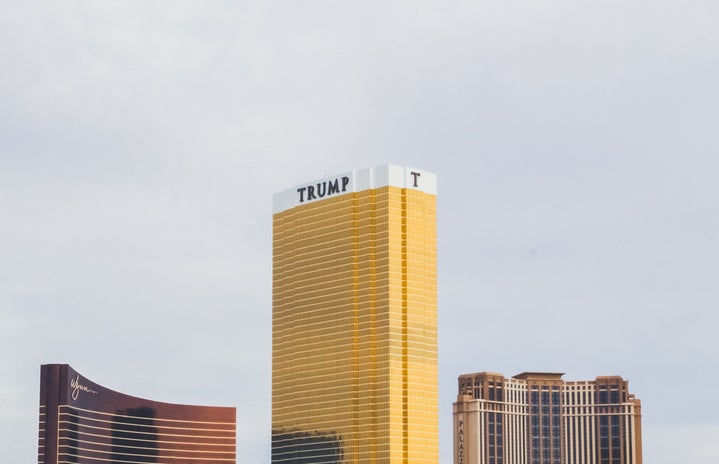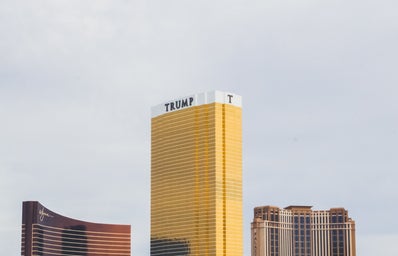Unless you’ve been living under a rock (or just hiding from the news cycle) then I am sure you have at least heard mention of the impeachment inquiry against President Trump or the Ukraine-Trump scandal. While information is still emerging every day and more facts are being unveiled, here are 10 burning questions about the impeachment inquiry answered, so you can look as informed as everyone else in your class or at the water cooler.
1. How does impeachment work?
Impeachment is a pretty scary term that has been tossed around since President Trump’s election and Russia’s interference in the 2016 election. But what does it actually mean? For starters, impeachment does not mean an arrest or even removal from office. According to the Washington Post, impeachment simply means that the House of Representatives has found the president unfit to serve office. It is up to the Senate to hold a trial that will be overseen by the Chief Justice of the United States – currently Chief Justice John Roberts. In the history of the United States, no president has ever been removed from office. Andrew Jackson and Bill Clinton were both impeached and Richard Nixon infamously resigned out of fear of impeachment. This is partially why so many questions swirl around this issue.
2. What is an impeachment inquiry?
Right now, the House of Representatives led by the Speaker of the House Nancy Pelosi is starting an impeachment inquiry led by Judiciary Committee Chairman Jerrold Nadler. An impeachment inquiry is merely the first step in a lengthy process to investigate the alleged crimes of the president that would render him unfit for office. The House Judiciary Committee has actually been investigating Trump since August but Pelosi has publicly refused to refer to this as an impeachment inquiry until the Ukraine scandal broke. Now, Pelosi is onboard and six House committees are investigating Trump.
3. What is the likelihood that Trump will be impeached?
Okay, big question time. What is the likelihood that this will result in something tangible or be blown away in the next news cycle by the next scandal? Impeachment inquiries, unfortunately for Donald Trump, do not go away that easily. According to the New York Times, at least 224 House Democrats support an inquiry which exceeds the required amount of votes needed to impeach. However, every Democrat will not necessarily vote to impeach Trump; it depends on the evidence. It is important to note that many House Democrats and some Democratic candidates have been advocating to impeach Trump before the Ukraine scandal broke. Now, NPR reports that the “Red Wall” in the Senate makes removal from office unlikely. Two-thirds of the Senate needs to vote to remove Trump from office, and it is unclear if Republicans will stand by Trump as they have for his other various scandals or if they will be swayed by any potential evidence. The BBC reports that Senator Majority Leader Mitch McConnell could “play hardball,” but he stated that he would not stand in the way of a trial. So in reality, we really do not know. As discussed earlier, this is foreign territory (no pun intended).
4. Who is the next in line for president?
Now let’s say Trump actually gets impeached and removed from office. Who is next in line? The BBC reports that Vice President Mike Pence will be next in line for the office, but there is the slight potential that Pence will be implicated, as well. Article II of the Constitution says that “all civil officers” of the United States can be impeached and removed from office. If that is the case, the next in line is Nancy Pelosi, followed by Chuck Grassley, President Pro Tempore.
5. Can Trump still be re-elected?
Yes. No. Maybe. No one knows. There has never been a president removed from office or a president that has run for re-election after being removed from office. It’s possible the Founding Fathers never thought this question would have to be answered. The Washington Post reports that if he is simply impeached, reelection is possible.
Worse, if the impeachment is not handled correctly; if the American public misunderstands what a lack of removal means; if the evidence is not presented properly and so forth, Trump’s position could be strengthened.
6. How is Ukraine involved?
Okay, time to get into the nitty-gritty. First of all, Trump called the Ukrainian president Volodymyr Zelenskiy (also reported as Zelensky and Zelenskyy) the morning of July 25th, the day after Robert Mueller testified to Congress. This phone call, transcribed here in an unprecedented release from the White House, begins with Trump congratulating President Zelenskiy for his election. Trump then reminds Zelenskiy of how beneficial the relationship between Ukraine and the United States is, but Trump expresses that Ukraine does not reciprocate The United States dedication and care. Trump then asks if Zelenskiy could look into Crowdstrike, the American cybersecurity firm (falsely rumored to be owned by a Ukrainian) that investigated Russian interference in the 2016 presidential election.
This is of utmost importance: Trump also asks Zelenskiy to look into former Vice President Joe Biden and his son, Hunter Biden. Hunter Biden served on the board of a Ukrainian gas company. There was a now-debunked rumor, referenced in the phone call by Trump, that Joe Biden wanted to fire a prosecutor in Ukraine because he was investigating Hunter Biden. NPR reports that Joe Biden did want to fire the prosecutor, but he was not alone. Many others in the U.S. and European governments also wanted to fire the prosecutor. Also, according to NPR, the prosecutor was not investigating Hunter Biden’s company.
7. What is Trump accused of?
Bad news: it’s complicated. Good news: I got you covered. Based on the transcript, it is an undeniable fact that Trump asked a foreign power to investigate his political rival Joe Biden and his family. This effectively invited a foreign power to intervene with the 2020 presidential election. With that in mind, it is alleged that Trump abused his office as the president for political gain. Finally, this could be an example of quid pro quo (something for something). A week before this phone call, Trump denied millions of necessary defense aid to Ukraine. Zelenskiy mentioned in the phone call that Ukraine was ready to cooperate for weapons from the United States. After this, Trump asked for the favor of investigating Biden and Crowdstrike. The mention of cooperation could have been alluding to the withheld defense aid.
8. What is the whistleblower complaint?
Okay, hopefully, you’re still following along. You might be wondering how this July phone call leads to an impeachment inquiry in September. This has to do with the whistleblower complaint. On August 12th, an unnamed whistleblower contacted Richard Burr, the Chairman of the Select Committee on Intelligence in the Senate, and Adam Schiff, Chairman of the Permanent Select Committee on Intelligence in the House of Representatives, with a formal complaint that can be viewed here. This complaint alleged that Trump used his political power to pressure Zelenskiy. The complaint also alleges that Rudy Giuliani, Trump’s personal lawyer, and Attorney General William Barr were involved. The whistleblower also states that White House officials believed they witnessed Trump abuse the office for political gain.
This complaint was a bombshell when it came out September 26th. Its late release is due to the Trump administration’s refusal to give it to Congress. The Trump administration cited executive privilege as the reason for this action. Executive privilege is the concept that the president can refuse to reveal information if it can threaten national security. On September 9th, the Director of National Intelligence Michael Atkinson asked for the complaint to be released to Congress as an urgent matter but Joseph Maguire, the Acting Director of National Intelligence, said it did not qualify as urgent. Finally, on September 25th, Congress received the document from the White House and released it to the public the next day. Whether this constitutes or provides evidence of obstruction of justice is still unclear.
9. What is this ‘secret server’?
If you’ve followed along this far, congratulations! Chances are you may have heard about a secret server and may be wondering how Hillary Clinton’s emails are involved. All jokes aside, the secret server in the Trump-Ukraine scandal refers to the whistleblower’s allegation that White House lawyers directed White House officials to effectively “lock down” the phone call transcript by placing the transcript in a “separate electronic system” for classified documents. The whistleblower stated that a White House official saw this as an abuse of the electronic system because there was nothing sensitive to national security in that transcript.
10. What will happen next?
Everyone is waiting with bated breath to see what will happen next. First on the agenda, the impeachment inquiry. Six committees are currently investigating this incident. Second, on the agenda, negotiating the testimony of the whistleblower to Congress in a way that protects the whistleblower’s identity. Honestly, your guess is as good as mine as to what will happen next. Stay tuned!



